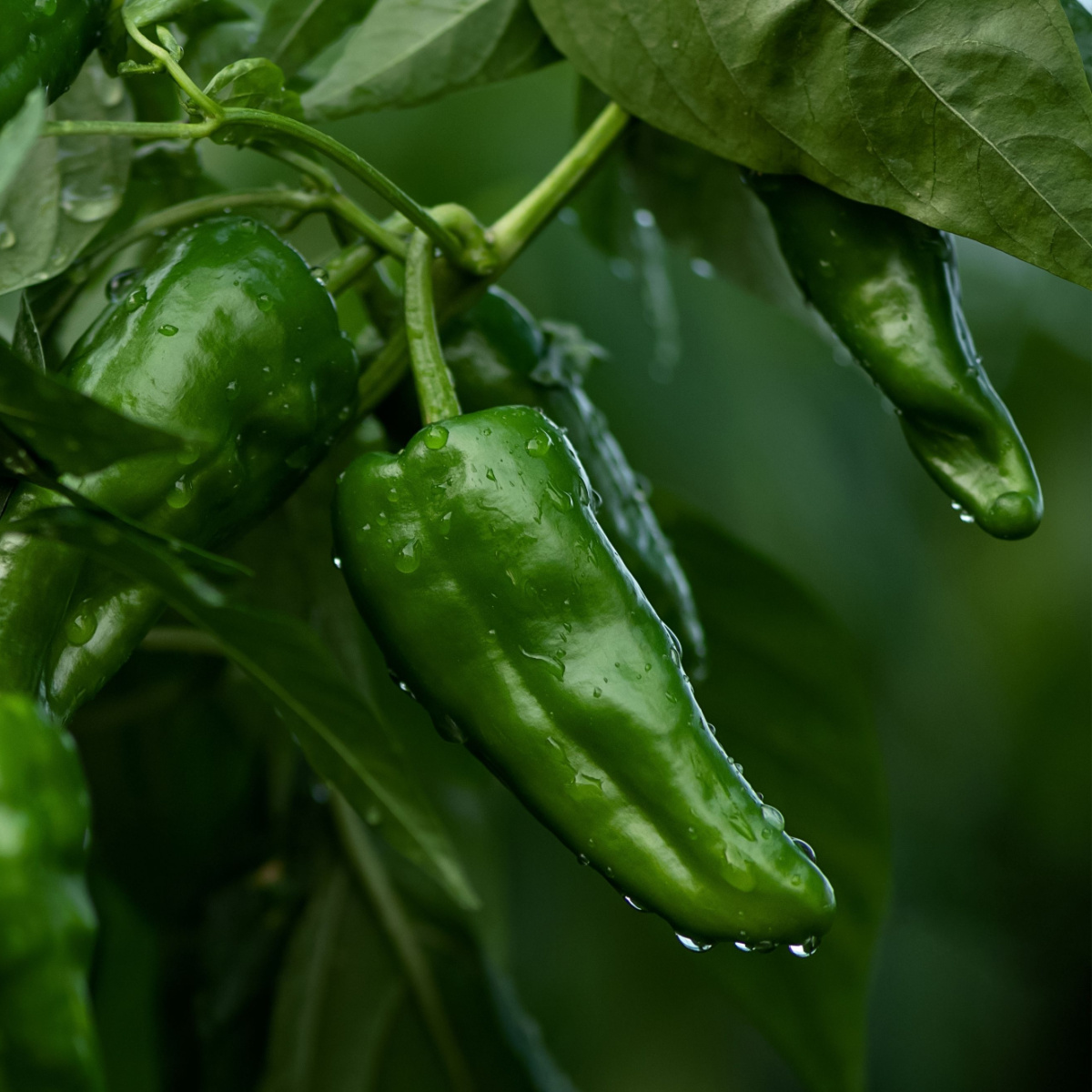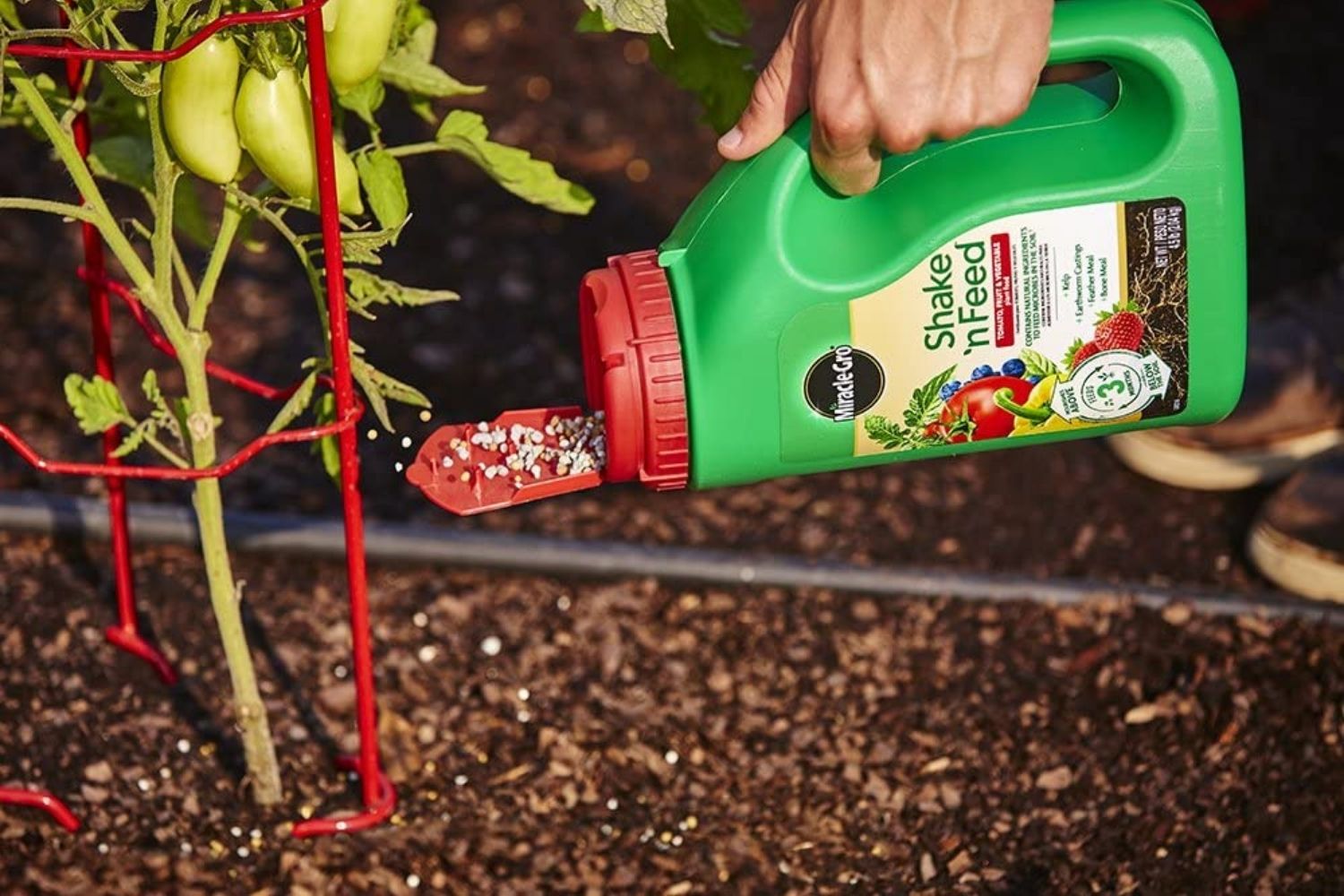Best Fertilizers for Peppers: Improve Growth and Taste with Our Top Picks
Organic Vs. Synthetic Fertilizers: Which Is Best for Nurturing Healthy And Balanced Pepper Plants?
In the world of nurturing healthy and balanced pepper plants, the selection between synthetic and organic fertilizers stands as a crucial decision with far-reaching ramifications. While both choices purpose to supply crucial nutrients to sustain plant growth, the subtleties of their influence on the dirt, plant wellness, and the environment spark a dispute that echoes throughout the horticulture area. Understanding the distinctive benefits and potential challenges of each plant food kind is important for pepper cultivators seeking to enhance their returns while preserving a sustainable and eco-conscious technique.
Advantages of Organic Plant Foods
Organic fertilizers offer a sustainable and environmentally-friendly technique to nourishing pepper plants, providing necessary nutrients without the usage of synthetic chemicals. These natural plant foods are stemmed from natural sources such as compost, manure, bone meal, and algae, promoting soil health and wellness and biodiversity. Unlike synthetic plant foods, natural alternatives release nutrients slowly, making certain a balanced and steady supply for pepper plants to grow.
One significant benefit of natural fertilizers is their capability to boost soil framework and water retention. By improving soil health and wellness, natural fertilizers promote useful microbial activity, which aids in nutrient uptake by pepper plants. In addition, natural fertilizers lower the danger of chemical run-off, securing water resources from air pollution and securing the atmosphere.
Furthermore, natural fertilizers add to long-term soil fertility by promoting the growth of valuable soil microorganisms. These organisms assist damage down natural issue, releasing nutrients in a form that is conveniently obtainable to pepper plants. best fertilizers for peppers. By fostering a healthy dirt community, natural plant foods support lasting pepper growing practices that profit both plants and the environment
Downsides of Synthetic Plant Foods
Synthetic fertilizers, as opposed to their organic counterparts, pose numerous disadvantages when made use of to nourish pepper plants, impacting both plant health and environmental sustainability. One significant downside of artificial fertilizers is their tendency to leach nutrients from the dirt promptly. This fast leaching can result in nutrient inequalities in the soil, triggering plants to struggle with shortages or toxicities. Furthermore, synthetic plant foods can hurt advantageous dirt organisms, such as earthworms and valuable microorganisms, disrupting the dirt community's balance.
Additionally, the overuse of artificial fertilizers can add to water pollution. Excess plant foods not soaked up by plants can wash away right into water bodies, leading to eutrophication, where algae flowers deplete oxygen levels in the water, damaging aquatic life. Artificial plant foods are typically derived from non-renewable resources, such as fossil gas, contributing to carbon exhausts and ecological destruction throughout their manufacturing.
Nutrient Absorption Comparison
When comparing organic and artificial fertilizers in terms of nutrient absorption, organic plant foods have the benefit of offering an extra balanced and slow-release resource of nutrients. Organic fertilizers contain a range of macro and trace elements that are not just useful for the plants however likewise advertise healthy and balanced dirt microbial task, which assists in nutrient uptake.
Moreover, natural plant foods improve soil structure and water retention more info here capacity, permitting pepper plants to gain access to nutrients a lot more efficiently. This better soil quality assists in origin advancement, making it possible for much better nutrient absorption. Synthetic fertilizers, although initially increasing plant growth as a result of their high nutrient focus, might hinder long-term nutrient absorption by derogatory dirt wellness over time.
Environmental Impact Factors To Consider

On the other hand, synthetic fertilizers, although often more focused and instantly available to plants, can have detrimental effects on the environment otherwise used correctly (best fertilizers for peppers). Their manufacturing needs high energy inputs, leading to greenhouse gas exhausts and adding to climate change. The runoff of excess synthetic plant foods can contaminate water resources, leading to eutrophication and damaging aquatic environments.
Ideal Fertilizer Practices for Peppers
To attain this, it is crucial to follow best plant food methods customized to the specific needs of pepper plants. One critical practice is to carry out a dirt examination before applying any kind of plant foods.
Another crucial method is to fertilize pepper plants at the correct time. Usually, peppers webpage benefit from obtaining plant food at growing and afterwards once more when they begin to flower. Over-fertilizing can cause nutrient inequalities and harm the plants, so it is crucial to comply with suggested application prices.
Furthermore, selecting a well balanced fertilizer with an NPK proportion that matches pepper plants' requirements is basic. Organic fertilizers, such as garden compost or manure, can be excellent options as they launch nutrients slowly and enhance dirt framework in time. Synthetic fertilizers can offer a fast nutrient increase when required. Eventually, incorporating artificial and natural plant foods deliberately can assist nurture healthy and balanced pepper plants while lessening ecological effect.
Conclusion

Organic fertilizers use an environmentally-friendly and sustainable approach to nourishing pepper plants, providing essential nutrients without the usage of artificial chemicals. Unlike synthetic plant foods, organic alternatives launch nutrients gradually, making sure a well balanced and constant supply for pepper plants to prosper.
Artificial plant foods, in contrast to their organic counterparts, pose numerous disadvantages when utilized to nurture pepper plants, impacting both plant health and wellness and environmental sustainability. When contrasting artificial and natural plant foods in terms of nutrient absorption, natural fertilizers have the benefit of providing a much more well balanced and slow-release resource of nutrients.Additionally, organic plant foods improve dirt framework and water retention ability, permitting pepper plants to access nutrients a lot more effectively.